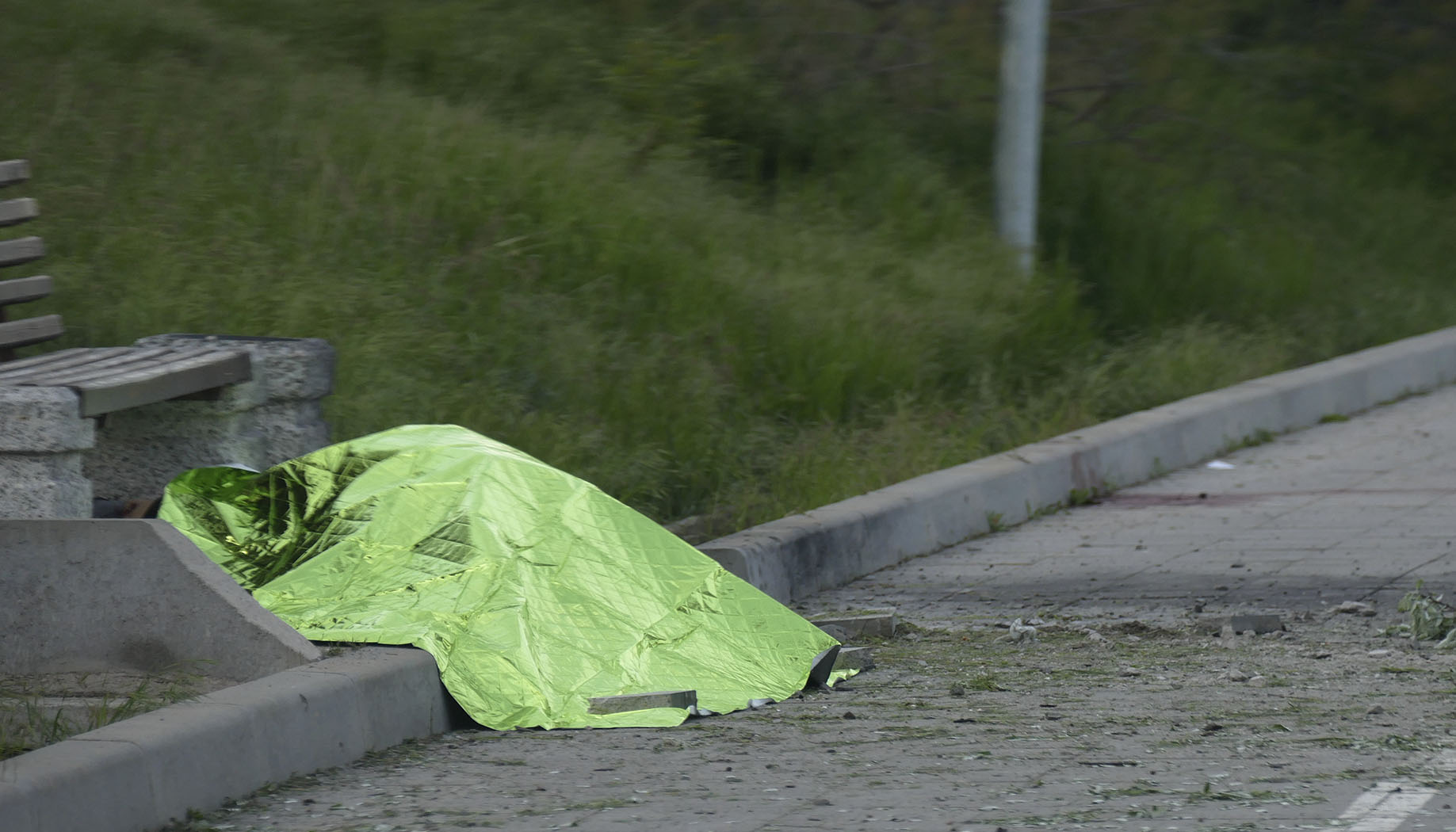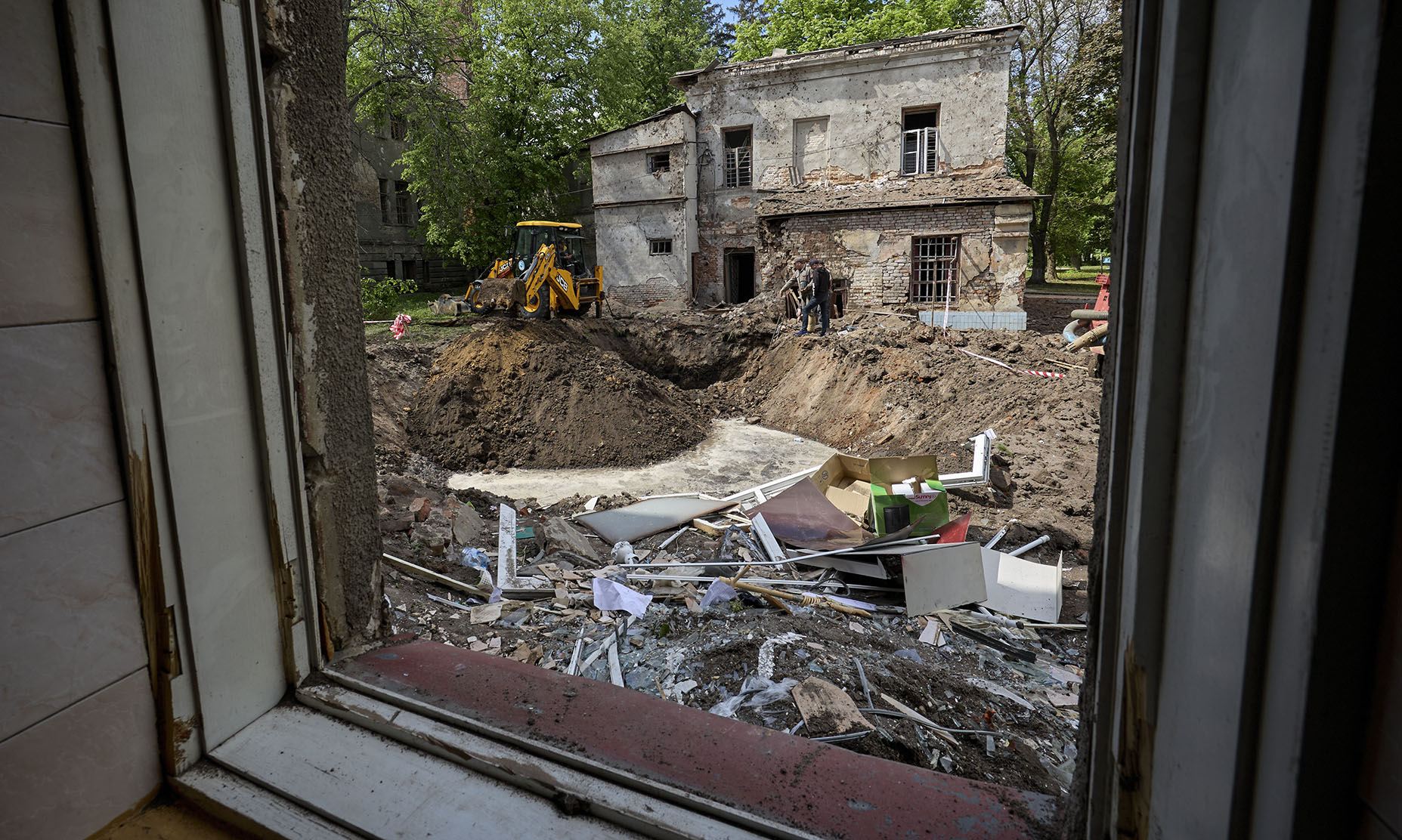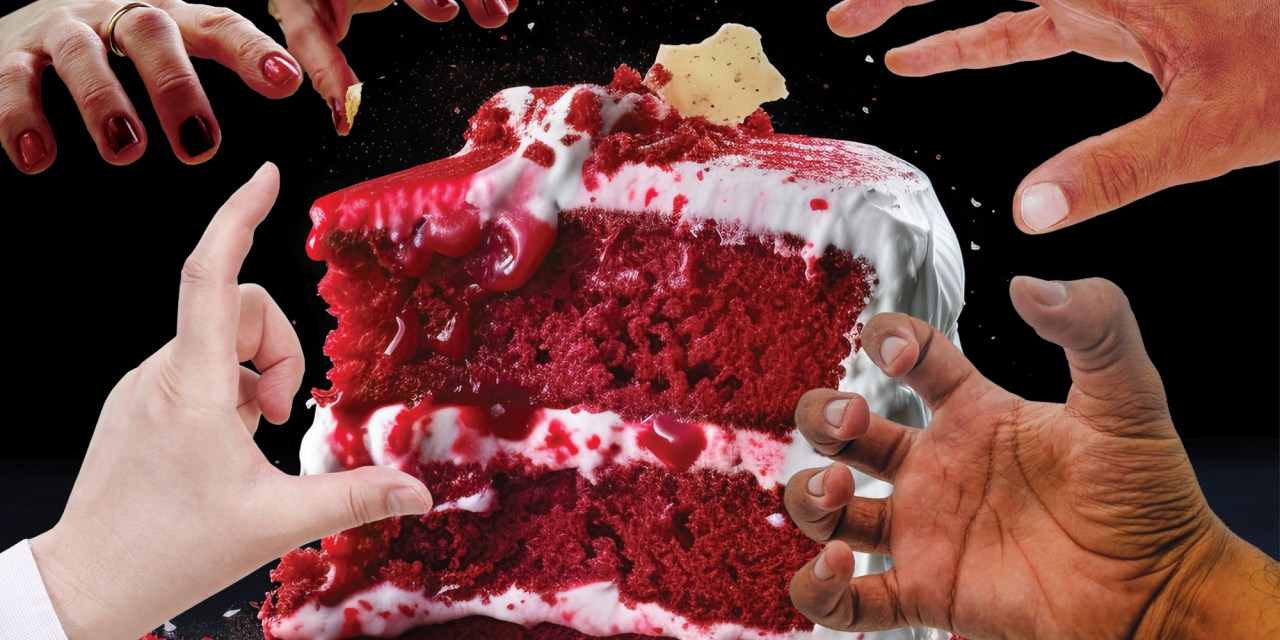Any analysis of the war in Ukraine is difficult, and being in the heart of the storm is no guarantee of greater clarity. But there is a fundamental disjunct, it seems, between the external narrative to which we subscribe as uninvolved observers, and the consistent message that was presented to us during our tour by the victims of Russian aggression.
The progressive narrative, to the extent that we have a cogent position, is that the conflict is essentially a perpetuation of the Cold War, a battle between the democratic West and the totalitarian East, played out on the killing fields of Ukraine. Ancillary to this view, is the idea that Putin has genuine security concerns arising from the creeping membership of Nato, and the refusal by Ukraine to guarantee that it will not seek to join America’s military club. The Russian bear has been prodded into action by the wooing of its ungrateful former colony by the West.
Ukrainians are appalled by this narrative. We presented this thesis to young Kyivan intellectuals – the consensus in response was that the explanation lacks an appreciation of the beast that is imperialist Russia. There is no security threat, there never was. Mr Putin does not for one moment believe that Nato poses any menace to Russian autocracy. The war in Ukraine is not in response to any action or inaction on the part of America or the European Union, it is quite simply a matter of cultural genocide.
Moscow views Ukrainians as errant citizens of the motherland who need to be assimilated and re-educated back into the fold, or face the ultimate sanction. Ukrainian history is the history of Russland; the Ukrainian language is but a peasant dialect of Russian; the culture of Ukraine is the culture of the Slavs, enshrined by all that is Russian; Ukrainians are second-tier Russians. The invasion of Ukraine, which began not in 2022 but in 2014, with the military acquisition and annexation of Ukrainian territories in Crimea and Donetsk, marked the beginning of a revived imperialist dream of a greater Russia with Ukraine as the rightful jewel in the crown.
Read more in Daily Maverick: War in Ukraine
While there may be truths in both versions, there are undoubtedly important markers that suggest that the Ukrainian perspective is one that we should take seriously.
Putin’s recent penchant for Russian history, and the unsubtle comparison of himself to Peter the Great, suggests that he has bigger personal goals in mind. He has pertinently referred to the disintegration of the Soviet Union as one of the key catastrophes in Slavic history, and his criticism of Gorbachev as weak and indoctrinated is telling.

A covered body on a street following a missile strike in Odesa, Ukraine, on 29 April 2024. (Photo: EPA-EFE / Igor Tkachenko)
On the ground in Ukraine, the desire to destroy any sense of a discreet Ukrainian culture is evident: we witnessed numerous cultural centres, icons and institutions that had been deliberately bombed, with no military or administrative target nearby; museums and galleries have had artwork renamed to reflect Russian origins, or have been simply removed and shipped back to Russia for display. Ukrainian as a language is victimised in the occupied territories and is mostly outlawed. And most chillingly, the Ukrainian authorities have verified the identities of 19,000 children from Ukraine who have been abducted and deported back to Russia for re-education. Even more frightening is the fact that the Russian administration appears to be proud of this blatant war crime, boasting that they have in fact “saved” half a million children from an inferior Ukrainian upbringing. While the Russian figure is not confirmed, the mere fact that Moscow is happy to claim it, sends a Siberian chill down one’s spine.
At a personal level, it is horrifying to be returning from a war zone that resembles so closely the devastations that have gone before it.
The heat of war understandably produces polarised views, and critical thinking may sometimes be lost. But it was troubling to hear how vociferously anti-Russian young Ukrainians have become after 10 years of war (as opposed to merely anti-Putin or anti his war machine). We spoke to survivors of appalling atrocities and there can be no doubt that the Russian military has targeted the civilian population with impunity: we witnessed the mass graves of Bucha, walked through the shelled residential areas of Irpin, walked with a survivor through the basement of the school in Yahidne where the entire village was held hostage for a month.
When we asked about these instances of torture and human rights abuses, we were advised that this is systemic to the Russia psyche and that “this is their culture”. This unhelpful characterisation of all that is Russian as evil or brutal pervaded much of our conversations.

People look at a US-made main battle tank M1 Abrams – captured by Russian troops during Moscow’s ‘special military operation’ in Ukraine – at an exhibition on the Poklonnaya Hill in Moscow on 1 May 2024. The exhibition, organised by the Russian Defence Ministry, features more than 30 samples of equipment made in several countries, including the US, Britain, Germany, France, Turkey, Sweden, Czech Republic, South Africa, Finland, Australia, Austria and Ukraine. (Photo: EPA-EFE / Yuri Kochetkov)
However, the Ukrainian perception is important, not just because it is the perspective of the victims of this onslaught, but also because it informs both the resilience of young Ukrainian people and their commitment to a resolution that sees the Russian invaders vacating all Ukrainian land. When asked about the solution to the situation, their view is perhaps best summed up by the reply from one young Ukrainian writer we met: “Hope is not a strategy.”
As to the acceptable outcome to the war, we were repeatedly told that a compromise with Russia in a peace-for-land deal will only fuel Putin’s desire for a complete annexation of Ukraine in due course. The respite will be temporary, the lives of Ukrainians under occupation unbearable. The only sustainable peace will come from a return of every Russian soldier to the east of the border. Though admittedly, the conversation tended to go quiet when asked about the reality of such a success.

Communal workers operate at the site of a rocket attack on a regional psychiatric hospital in Kharkiv, northeastern Ukraine, on 27 April 2024. (Pboto: EPA-EFE / Sergey Kozlov)
Haunting visions
At a personal level, it is horrifying to be returning from a war zone that resembles so closely the devastations that have gone before it. We saw long lines of trenches with wooden boarded sides, a haunting vision from the battlefields of World War 1; we walked through gutted residential apartment blocks, the burnt rubble of Dresden and London; we heard the stories of barbaric treatment of civilians that echoed the atrocities committed in Nazi Germany, Vietnam, Chechnya and Afghanistan; the abduction of children represents the worst of historical colonial arrogance around the world.
Oppression has more of a hold on the world than ever before, and at least two of the current worst perpetrators, inexplicably, are both the previous victims of history themselves.
I cannot bear that we have learnt nothing, have progressed so little, and are still unable to see the pain we inflict on others. My thoughts are filled with the horror of the visions of yet another war. Though my tears fall impotently and are of no consequence for the people of Gaza or the friends I have made in Ukraine, still we must rage against the storm. DM
Andrew Brown is an advocate at the Cape Bar, and the author of several books, including the novels Inyenzi, Coldsleep Lullaby, Refuge, Solace and Devil’s Harvest, as well as Street Blues, about his earlier experiences as a police reservist. He has won the Sunday Times Fiction Prize and his work has been shortlisted for the Alan Paton Award and the Commonwealth Writers’ Prize (Africa Region).
![]()



 1 week ago
72
1 week ago
72

















